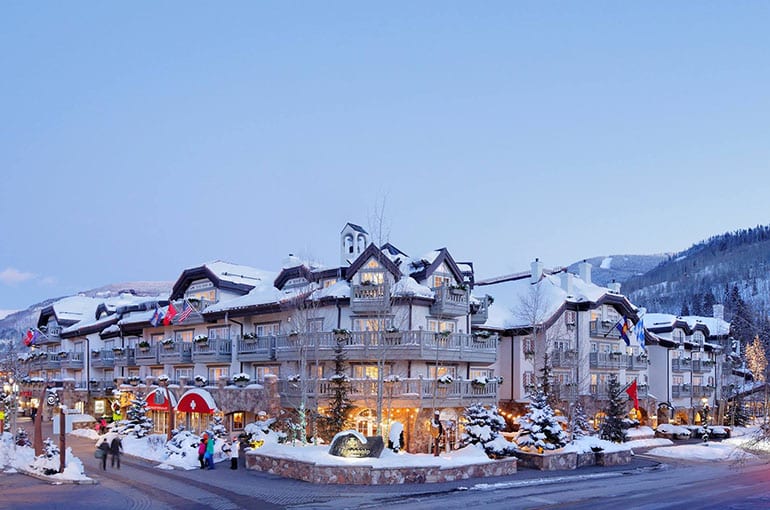10 Critical Steps Toward an Ace Hotelier
Alike other categories, with the invasion of technology, hospitality has experienced a major shift in how the industry approaches its customers – and the hotel sector anything but an exception.
These days, millennials heavily rely on social media platforms. Specifically, in travelling, they tend to do research, get reviews and insights from peer before packing up their backpack and deciding where they’re going to stay.
Thus, to run a successful hotel business, hoteliers like you are required to be aware of, and also master a wide range of aspects from skills to strategies to succeed in optimizing the success of your business as well as getting attention from the tech-savvy generation.
In this article, we will cover a full breath of hotel digital marketing strategy, in order to help you to take a major step forward in this digital age and outshine competitors to be the front runner in this industry.
Digital Hotel Marketing: 10 Winning Strategies to Boost Your Hotel Bookings
It’s challenging to be a hotel marketer, being against the overwhelming number of competitors – especially with the growth in popularity of websites like Airbnb or Home Away. Whilst they are all too familiar with these challenges, they are still “snowed under” with hitting their metrics, which are often tied to bookings.
Fortunately, no matter how tough it may seem to be, you can probably win this game as long as you understand the rule and having besides you are several wise tips for hotel digital marketing. So, let’s see!
Strategy #1: Make Yourself Easily Searchable Online!
Based on research conducted by WordStream, currently, there are more than 75% of travelers use search engines to find hotels for their vacation.
Since the takeover of technology happened, travel agents are long gone. Just simply with their phones or their laptop, and no need to leave the comfortable beds, travelers are fully equipped to carry their own comparative research.
So, what does it mean? The answer is simple: As a hotel runner, you are required to make your hotel be easily found online. Barely talking, it’s a “must” that your hotel’s brand appears literally everywhere relevant online for potential bookings. Staying on top of your SEO, using popular hotel keywords, and keeping your site loads super-fast is amongst the winning key. Let’s be 200% sure that people can find you immediately when they need to book accommodation!
It will, nevertheless, not work if you solely rely on organic optimization. In fact, the SERP (Search Engine Results Page) for hotel-related searches is heavily monetized, which means the advertisements will come first. What needs to be done is bidding aggressively on Google’s Search, Display Networks, Bing, social platform (Facebook, Instagram, etc.), and websites like Booking, Trip Advisor and Kayak.

Moreover, it is more than essential to establish a strong presence online. Yet, it is also equally important to do research on your website analytics to figure out the most typical booking platforms, as to create an engaging and competitive presence on them. Plus, don’t ever limit yourself to just one social platform, search engine, or travel website – make sure that your brand image is visible everywhere your target audience is!
Strategy #2: Promote Your Brand with Google Ads
As previously mentioned, running organic SEO alone is not enough to reach your target audience as much as you wish! To promote your brand effectively within such a crowded online landscape, Google Ads can be a seamless match for your marketing efforts!
When it comes to hotel sector marketing, Google has integrated a hotel feature into its standard Google Ads lineup. When people search for hotels, alongside traditional ads that reach the top of the SERP, Google will promote hotels in a specific ‘search unit’ that is displayed above traditional results.

More than that, Google goes above and beyond to display hotels uniquely when searching for them on Google Maps, which proves to be super-effective for those hotels who utilize it. As the majority of modern travelers start off planning their trip by scouting a destination, taking part in this service will put you on top of the stack.

Actually, the most appealing feature of Google Ads comes down to a cost-per-click (CPC) system. In such system, bidding on specific keywords targets specific searches and demographics of people, whereby you can easily specify how much you are willing to pay per click/conversion. This can, for instance, be set to a percentage of a hotel’s room rate so that you never pay more than you want for an ad.
Besides, there are a plethora of strategies and metrics to be aware of when running Google Ads campaigns. As above discussed, Google Ads should be a high priority when you craft your own hotel digital marketing strategies, and to “get things rolling”, you should be fully aware of how it works.
Strategy #3: Map Out A Right Target Audience Persona
Depending on which type of your target audience, you will have a different marketing strategy for the hotel. As compared to a hotel located on highland, the customers of a hotel standing near a sandy beach will book differently, travel differently, and maybe have totally different budgets!
Understanding that targeting searchers or adjusting your bids based on age, gender, and parental status requires a bit more nuance, Google Ads has introduced the tool Income Targeting to help hoteliers like you in clearly defining your target customers to have effective promotional campaigns.
Apart from the above obvious solution, there are more ways to break down your audience when it comes to marketing your hotel.
Normally, hotels have a wide variety of customers of different income levels, since they may offer rooms on the more extravagant side (like the presidential suites) and other rooms that are often sold at discount prices. These two types of audiences need to be broken down and targeted separately. There is even a difference for the same hotel chain in different locations. All of these things are critical to consider when crafting your marketing campaigns.
Bear in mind that audiences can be probably split into two, three, or even four separate campaigns, so that you can convey the right message to the right prospect. Tools like Facebook’s targeting options are claimed to be useful in this case. Just ensure you spend the time to define your audiences so you can craft the right message to the right person at the right time!
Strategy #4: Invest in Brand Appearance During the Peak Booking Seasons
Each hotel’s peak booking seasons are different from each other depending on its specific location. As a hotel marketer, it’s “must” that you are fully aware of when your peak booking season is; otherwise, you may be a step behind when it comes to ad budgeting. It completely makes sense to spend more of your annual budget in your busiest season.
Figure out when things are busy, steady, and slow and then adjust your marketing budget accordingly. Also, let’s make sure your windows aren’t too narrow! These things often require planning ahead, but Google and other ad platforms make it fairly easy to adjust your budget on an ongoing basis.
Another thing to take advantage of is ad scheduling. Should you run a hotel attracting frequent business travelers, these individuals may tend to book more during business hours compared to the folks traveling for leisure who are more likely booking during weeknights or weekends.
Again, be a clever data-driven marketer! Let’s look at the data to determine this and make wise use of Google ads scheduling, so that your ads are only running at a higher budget during these peak times.
Strategy #5: Introduce Added Incentives to Provoke Customers’ Interest
Now let’s think about what your hotel does have – compared to your competitors – that entice visitors. Is this thanks to its convenient location, or its reasonable price? Your hotel needs to have a good reason that leads your prospects to choose you rather than another one in the same niche.
If there are not any obvious reasons, like having the lowest prices or the best reviews, brainstorm some unique incentives and offers you can provide to prospects. For example, you could offer all first-time guests a 15% discount. Furthermore, no matter how simple this idea seems to be, incentives are great for creating a sense of urgency to spur people to book with you before they miss out on a special limited time offer.
Strategy #6: Establish Local Partnership
When your hotel is downtown, or a prospection area, etc., – and you are surrounded by local business and attractions, it’s a “should” that you get to know your neighbors. Making friends with the local business owners is a great way to build profitable partnerships and co-promote each other, especially if you’re marketing a boutique hotel rather than a chain.
Let’s have a simple example! You could partner with a popular brewery and run a contest where the winner gets a free brewery tour and beer tasting along with a discounted stay at your hotel. Fostering these relationships will lead to easy, effective, and affordable marketing that stands good chances of increasing your booking rates.
Strategy #7: Get the Benefit of The Location
Chances are many future vacationers are still indecisive whether or not the city or town where your hotel is located is the place where they want to use their precious paid/personal time off (PTO). This is why you shouldn’t just be focusing on the amenities your hotel has to offer.
What makes your city or town a desirable place to visit? Whereas it is smart to promote your top-rated room service, it is just as important to promote your location. So, don’t just market the hotel, market the location!
Strategy #8: Build Out a Stunning Website
Whilst this might seem like common sense, there are not a small number of hotel websites out there that are slacking in their website design. This is an instant turnoff for hotel bookers.
Remember that your website itself is an experience. The marketing story doesn’t end with awareness and the prospective guest clicking on your website. You have to deliver the best experience possible when they land on your homepage and surf around.
The website is often the first impression a person has of your hotel, so let’s make it breathtaking as well as usable. That means it’s simple and straightforward for users (on any type of device) to find the information they need as well as to complete a reservation.
When overhauling your website, focus on keeping the design and navigation clean, crisp, and simple. Ensure your hotel photographs are professional, high-res, and displayed in the correct formats and ratios to work for both desktop and mobile. Additionally, it’s super-powerful that you keep the site language clear and simple, ensuring the booking process is easy to avoid mid-booking abandonment. Videos also tend to work well since they show off your space in a more thorough and engaging manner.
After all, a hotel is in the business of selling an experience and also selling a location. Let’s spruce up your website with a wealth of content, so that your prospective guests can see what you have to offer.
Strategy #9: Offer A Perfect Full-Round Service
Marketing and customer service always go hand in hand, especially in the hospitality industry. If you go above and beyond for your customers – before, during, and after their stay – then they are much more likely to pay it forward and do the same for you in terms of stellar online reviews, referrals, and return visits.
To be more specific, the first step is ensuring your staff is hired and trained with a customer-first mentality. While sometimes working with people can be very challenging, be sensible and always put your customers first!
For instance, your hotel visitor is upset with the view from his/her room and there are no other open rooms available. Try to figure out if you can move them for the remainder of their stay later on, and to compensate for the trouble, provide them with a bottle of bubbly and a hand-written note apologizing for the inconvenience. These types of gestures, despite being small, can make a lasting impact and show the customers how you value them.
More than that, when customers are treated exceptionally well, they will be much more likely to share their experiences with others, leading to more business for you.
Strategy #10: Promote the Customer Loyalty Program
Cross-sell customers is also a brilliant strategy. Once your past customers had a positive experience in the past, they can make the best audience to market to.
Similar to satisfactory customer services, customer loyalty programs are a wonderful way to ensure customers come back again and again. Typically, these programs are designed to give large discounts and special perks to returning visitors. Perhaps your program works by allowing guests to earn points and reach certain levels each year (Gold, Platinum, etc.).

Learn to Be A Social Listener!
In this age where sharing experiences and wanting their voice to be heard have become societal norms, people have begun to flock towards other people to determine travel destinations and hotel recommendations.
As the world is becoming more digitally connected and individuals are becoming more participatory, the hospitality industry, as a whole, should put its ear to the ground – or screen, digitally speaking – and take note of social listening. Whether you are a global brand with locations in multiple countries or you are a small business to a specific destination, all hoteliers can take advantage of the amount of data the internet provides about your customers.
Fairly speaking, digital marketing for hotels is all about social listening. Practicing social listening is not considered a specific strategy but should be a critical part of the follow-up process in digital marketing for your hotel business.
You can employ many analytics tools to leverage data, grasping deeper insights to provide more strategic and meaningful experiences to your customers. Should you still be vague about this, here are a few handy cases for these social listening tools:
- You can track how a social media campaign is being received by your followers
- You can identify dissatisfied customers and their complaints
- You can act on your feedback by engaging customers or remedying situations
- You can track hot topics in the industry or new traveling trends
Social listening takes the guessing game out of digital marketing for hotels. Customer satisfaction in this industry is vital to maintaining a loyal customer base, and in this influence-driven society, it is also vital to attracting the next new customer!
The Final Words
Beyond any doubt, the digital marketing landscape has revolutionized all industries – and the hospitality industry is not an exception. To be a final winner in such a challenging business game, a well-defined digital hotel marketing strategy is needed to be in place.
By adopting these tactics and practices as a starting point, you are now fully equipped to customize your own marketing strategy to streamline the booking process and heading toward potential clients.









